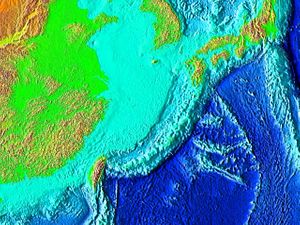The biggest security news out of the Asia-Pacific this week is China’s decision to unilaterally impose an Air Defense Identification Zone (ADIZ) over a large swathe of the East China Sea, prodding Taiwan, Japan, and South Korea, and shooting the East China Sea to the top of the list of the Asia-Pacific’s hottest flashpoints. We’ve had plenty of coverage on the issue this week at The Diplomat, and here’s a round-up of that analysis (followed by a few defense and security links ahead of the weekend).
My colleague Zachary Keck took a look into the reasons why China decided to implement the ADIZ when it did and in the manner it did; he argues the ADIZ is consistent with China’s “lawfare” strategy towards maritime disputes (Zach also had some of the earliest coverage of the ADIZ and the U.S. B-52 flyby). Flashpoints author Harry Kazianis argued for Washington to step in and reassure allies against the backdrop of the ADIZ, not succumbing to Beijing’s “game of chicken.”
Second, a couple pieces covering the Taiwan angle: my colleague Shannon Tiezzi and Flashpoints contributor J. Michael Cole each offer their takes on the ADIZ’s implications for cross-strait relations.
I wrote a piece exploring China’s somewhat odd decision to prod South Korea over the ADIZ, given its unwillingness to raise the ire of South Korea over territorial issues in recent years. China and South Korea held a long-scheduled high-level defense meeting. The ADIZ issue between the two countries was added to the agenda at the last minute over South Korean concerns that China had drawn the ADIZ’s frontiers a little too close to Jeju-do for comfort. Yonhap reports that China rejected South Korean demands to redraw the ADIZ — a bold move that is certain to thrust East China Sea territorial issues to the top of the bilateral agenda between those two countries. J. Berkshire Miller takes a look at the broader diplomatic picture between China and South Korea in a feature piece this week as well.
The Diplomat’s Justin McDonnell spoke to David M. Finkelstein of the Center for Naval Analyses about the ADIZ earlier this week. Read that interview here.
Since these pieces were written, China has scrambled jets after more U.S. and Japanese flyovers in its new ADIZ. Keep your eyes peeled for more on the ADIZ next week from The Diplomat.
Next week, U.S. Vice President Joe Biden will be visiting the region.
Defense Links
Both Iran and Russia announced new submarine classes this week. Iran launched its new Fateh-class indigenously-built sub. USNI, citing a report by Jane’s Defence Weekly, stated that one of the suspected Fateh-class subs was spotted around Bostanu Shipyard, near the Strait of Hormuz in late October. The 500-ton submarine is a somewhat surprising development considering Iran’s fiscal troubles generated by years of biting sanctions. Iran hasn’t shied away from using its submarines boldly beyond Hormuz, traveling into the deep Indian Ocean.
Russia’s new generation of underwater warfare hardware is a slightly more impressive story — its new Novorossiysk stealth submarine is touted to be “virtually undetectable when submerged.” RT cites the captain of the boat on the matter: “Our potential opponents call it the ‘Black Hole’ due to the very low noise emission and visibility of the submarine … To be undetectable is the main quality for a submarine. And this whole project really fits its purpose.” The Novrossiysk sub belongs to the Varshavyanka-class of advanced stealth submarines being built by Russia (also known as Project 636).
Aviation Week reports that the United States ranks as the top supplier of defense aircraft and aircraft technology for Asia-Pacific partners and allies, with about $79.2 billion inexpected sales between 2009 and 2023.

































